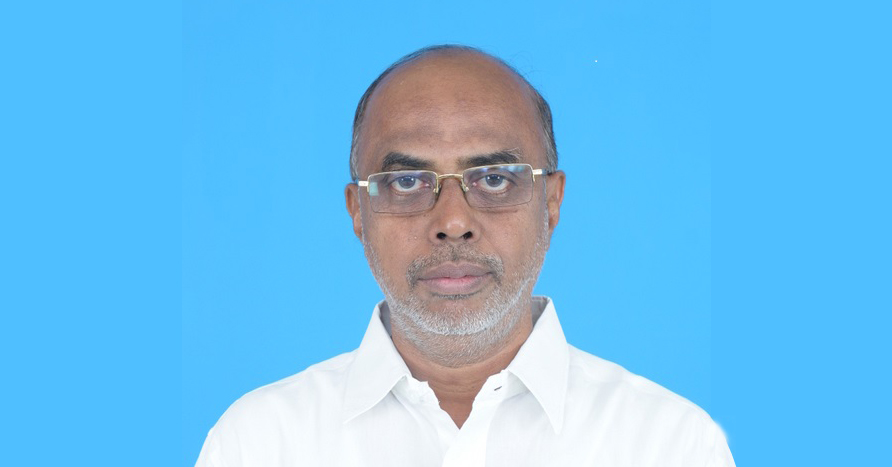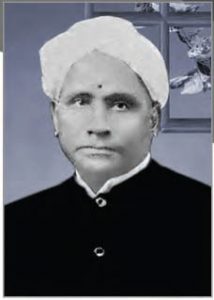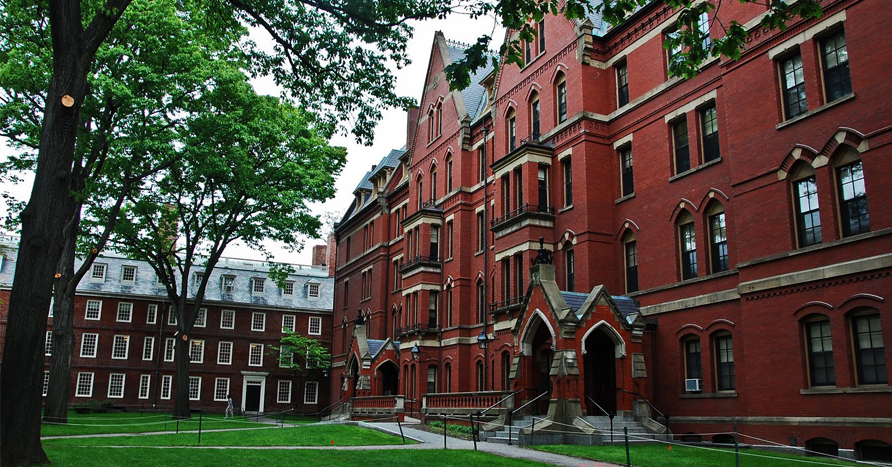S.MUTHIAM MUDALIYAR
FATHER OF COMMUAL G.O.(1883-1953)
Methinks as though a ministership in the Madras Cabinet is the last Act in a man’s life. Methinks too that he must have burnt his boats and mumbled his last prayers; he must have written ‘finis’ to the chapter of his political life and laid down his office and retired, unhonoured and unsung. For an ex-Minister of the Madras Cabinet is either an exhaust volcano or merely a spent up force. This is at least the impression that creeps into your mind and keeps you wondering at, the case of Sir Kurma notwithstanding. For one he has sunk into oblivion, another is altogether unheard of, a third he has receded to the background while a fourth he is run into bankruptcy, a fifth is nourishing forlorn hope and yet another is chewing his empty cud. Some of their friends have been shut out of the Legislature and others that have been shoved in are pinning under a sad plight. And all of them are together and immortal in their insignificance. May be that they deserve this all or may be that they are unfortunate among their country men whose sense of political gratitude is so miserably poor. Our people have yet only an undeveloped sense of politics.
Though a justice from the very beginning, Mr. Muthiah Mudaliar had ceased to be one by 1923 when he stood for the Council on the Swarajist ticket and got elected. He stood again in 1926 and was re-elected. His place was naturally the Opposition Benches. Upon the time of his acceptance of office, Mr. Mudaliar’s work in the Council was not much of a spectacular character. It was the kind of ordinary and unimpressive work which every conscientious and pains-taking representative can be expected to carry out. He was occasionally on his legs; sometimes putting interpellations and at other times making speeches but always concerning matters connected with his district and its people. It was a question regarding the resettlement of Thanjavur, the benefit of the Mettur Project to his district or a mass dismissal of many village – headmen. It was a speech mainly concerned with the forbidding tax on the judicial stamps. Thus he was even guilty of narrow parochialism. Of course, he made his seasonal speeches on the budget every year and at time very good ones.
Selfless in nature and strict in principle, Mr. Muthiah was a scrupulous politician of the Swarajist School. When he was offered ministership in 1926 he refused to accept it. He deliberately chose the uncongenial and arid work of the Opposition rather than to the sweets and substance of a seat on the Treasury Bench. But soon things began to happen which shook his faith and slowly but surely disillusioned him. He saw to his utter chagrin his own Swarajist colleagues-the sworn enemies of diarchy, whose sole purpose in the Council was clogging the wheels of the Government-the tallest and the most vociferous of them, not merely sympathizing with the Subbaroyan Ministry but also actively adding to its longevity and vigour. They were in an unholy and secret alliance with the ministry and vociferously proclaiming their destructive doctrines. This was a piece of political hypocrisy for which Mr.Mudaliar was not prepared. His sense of consistency was scandalised. He threw up his hands and cried out “These be the Swarajists” This delectable game of Dr. Jekyll and Mr. Hyde in which the Swarajists indulged without the least “compunctious visitings of nature” was revolting to Mr. Muthiah Mudaliar. He attended, as a member thereof, a meeting of the All-India Congress Committee held at Bombay and moved a resolution for instituting an enquiry into the conduct of the Madras Swarajists in the Council and fortaking taking disciplinary action. Though a full and free discussion of it was dodged and evaded, a committee, with Mr.Mudaliar in it was formed for the purpose. But the very next day Mr.Mudaliar was told that the committee had sat, made its investigation and had absolved the Swarajists of all blame and misdemeanor. It was a bolt from the blue. It was too much for him. It was the last straw that broke his faith. This was adding an insult to injury and he was not the man to pocket it.
In a very real sense it was the Madras Swarajists that manufactured ‘Communal’ Non-Brahmins and constitutional justicites. Those Swarajists’ clannish sympathies and cunning tricks, their provoking conduct and their petty jealousies have driven out of their own camp a few men of firm faith and flawless discipline. With no other party to pay their allegiance to, these mighty malcontents either take shelter under the Justice Party or offer it their co-operation for all practical purposes. Thus had a host of sterling heroes like Sir Shunmukham, E.V. Ramasami, Dr.P.Varadarajulu and T.V.Kalyanasundara Mudaliar strayed from the Swarajist fold and struck to the ranks of the opposite party. And Mr. Muthia Mudaliar too went the same way, these people had gone. The moment he alighted at Madras he unburdened his heart to a press correspondent. Inter alia, he described the position of his Swarajist contemporaries in an indignant tone and a picturesque smile that will ever be remembered by everyone of us. ‘The position of the Swarajists’ spoke out this sadly disillusioned man “is like that of a sanyasin who vows celibacy and refuses to marry a women but reveals in the arms of harlots.” What a homely smile and what an exact picture! A sentence of such classic cast has never been minted by a South Indian, either before or since. “There had not been anything like it since David went out with his sling and pebble and slew the Philistines.” The nation was amazed at it did from a sane and sober politician with no saber-rattling practices, it had a peculiar value in it. He became at once the cynosure of the neighboring eyes. He shot up into the public gaze by virtue of these fine phrases even as Calvin Coolidge had shot up into fame in America by virtue of his magic words.
Soon came a crisis in the Madras cabinet. Two of Dr. Subbaroyan’s colleagues had been persuaded or fancied that they had found out that after all diarchy is unworkable and that no self- respecting minister can work it. So in a fit of feverish patriotism and as a mark of their indignant protest, they resigned their jobs amidst the rapturous applause of the Press. They had made a tremendous sacrifice and were hence admitted into the enviable regions of immortal fame. Mr. Muthiah Mudaliar was offered one of the seats and he accepted it with alacrity. Mr. Sethuratnam Iyer and himself stepped into the vacant shoes and sat on the Treasury branch. Even the Justice party was agreeable to this change and so well known to the world, the diplomatic Panagal too had something to do with its constitution. The Ministry had his blessings ever after that time.
The introduction of the principle of communal rotation in the matter of recruitment to services, with a view to prevent the preponderance of one community over others, had from the beginning been the ambition and ideal of the Justice Party in Madras. “Equal opportunities for all” has long been their motto and a little bit of work too had of course, been attempted. But that reform of communal justice had to await the arrival of a single person in the shape of Mr. Muthiah Mudaliar, to be introduced in our Province. What the Justice Party had not dared to do, this Independent Nationalist Minister had the unique courage and good sense to introduce in the shape of a Communal G.O. in the year 1929. At first applied in the Registration Department under his care, this principle was soon introduced to almost all services in the Madras Province. To this bold step of a benevolent nature the Madras Province is indebted to Mudaliar. It was the first of its kind in the whole of India. And coming as it did from a Tanjorian, it bespoke a courage of no mean order on his part. It meant he had driven a coach and four on the pet theories of “efficiency first” of his enlightened electorate. Could anyone with an eye on his re-election have dared such a dangerous policy?
As for the non-Brahmins themselves they have found out their real and sincere benefactor in Mr. Muthiah Mudaliar. That august and ardent Leader of the Non-Brahmin public, Mr. E.V. Ramaswami spoke out merely his own feelings but also those of millions of his fellow men, when he exhorted at a public meeting as follows:
“It is the sacred duty of every Non-Brahmin to commemorate the name of this courageous benefactor Mr. Muthiah Mudaliar by naming his children after the latter.” A great tribute indeed and by a great son of the soil and who but a great man could have called forth this spontaneous testimony of deep gratitude? Mr.Mudaliar is the idol of the Non-Brahmins, only they do not burn incense at his altar. But in every bread that many a Non-Brahmin break at their table, the image and work of this immortal figure rise up and remind them of his name!
No less important and in every sense decidedly more original was his dexterous handling of the vexing portfolio Excise in Madras. The excise policy of the government has always been a stick handy enough for the Opposition to beat the former within season and out season. No less embarrassing was the nature of the excise revenue which could not be dispensed with or diverted without injuring the body politic. The successive Ministries in the diarchic system have always found themselves on the horns of a dilemma, hardly knowing what to do. The inconvenient and immutable system of finance starting at their face on the one hand and the endless and merciless eloquence of the prohibitionists holding them up to the ridicule of an understanding public on the other- the ministers were nonplussed and at their wits end but the bold Mr.Muthiah Mudaliar wanted to see if he could not do something in this matter something that would silence the reformers and satisfy the government at one stroke. He was not the type of man that throws off his hands in despair and bides his time by becoming a docile convert to political fatalism. He had an abundant faith in free-will, free-will not only of the minister to choose the proper thing and do it at the minister to choose the proper thing and do it at the proper time but also in the free will of the people themselves to choose between drunkenness and sobriety, poverty and plenty. Compulsory Prohibition might have been desirable but he had no faith in it on principle. But was it possible either? No, it was impossible on two grounds. For one thing the present financial structure, unless subjected to a radical change, would forbid structure, and would forbid such a policy. Secondly, such a policy could not be a success in its very nature – as indeed the classical instance of America, which was quoted by the Reformers as an example and model, has so clearly demonstrated. Hence Mr.Mudaliar struck at a plan – a very original plan to constitute and Excise Propaganda Central Committee with district committees and the most efficient staff all through the Province. He made a provision of four lakhs of rupees in the Budget for the propaganda expense. It was the first time in the Budget for the propaganda expenses. It was the first time in the whole world, with perhaps a single exception, that the Government of a country organized and financed an official propaganda on such a large scale and with so much enthusiasm and earnestness. It was original in conception and bold in execution. And throughout his tenure of office he had made provision for the amount in every Budget. But unfortunately his ‘Justice’ successor did or could not follow it up with patience and perseverance and the scheme was discontinued. If only this sane and practical scheme could be continued for at least a decade, there is no denying that it would have carried our Province very far towards voluntary prohibition. Even in the latest International Congress against the Drink Evil that was held at the Imperial Institute at London during the first week of August, a commending reference to this policy of the Madras Minister (of course, Mr. Muthiah Mudaliar) was made by Rev. Herbert Anderson, the first Secretary to the Prohibition League in India.
Besides the major policies and programmes, Mr.Muthiah Mudaliar has made himself responsible for many a reform of minor character but of much usefulness. Here is a spontaneous tribute paid to him by Dr.S.Muthulakshmi Reddi, which will speak for itself. “We women are grateful to the then Minister, Mr.S.Muthiah Mudaliar, who evinced a very keen interest in the question of medical relief to women and children and it was largely due to him that the provision in the budget for a Woman Director of Public Health Department, for an increased Maternity and Child Welfare staff and also for a liberal grant to the Red Cross Health School has been made.” And she wound up this tribute with a necessary warning to his ‘Justice’ successor. “we hope that his successor would see that the grants are utilized for those schemes for which they have been already earmarked.”
As a Minister to the Government of Madras, Mr.Muthiah Mudaliar was conscientious, painstaking and careful. So marvelously would he master every minute detail of his work, that the keenest and cleverest among the civilians who served under him as Secretaries had the greatest admiration for him. His kind and courteous manner combined with his very strict demeanour and vigilance won the unstinted praise of his official staff at the Secretariat. The tallest amongst the civilians dared him. They were so much impressed with his common – sense and industry that they willingly conceded him the privilege of an “infallibility decree.” He could not go wrong; at any rate he would not knowingly mislead was their firm conviction. He has built up in the Secretariat such a lofty and lovely tradition as has been hardly equalled by anything save that of Panagal.
Within a short period of about three years, Mr.Muthiah Mudaliar has achieved many reform and attempted more, than many a predecessor or successor of his. People with little ability and less record of work have gone forth amidst the gullible public and blown their own trumpet, boisterously and ever. But Mr.Mudaliar, even shy and shunning the tricks of self advertisement has chosen to recede to the back-ground, suffering to his work to speak for itself. Though apparently contradictory, the throwing open of the Justice Party to the Brahmins and the introduction of communal rotation are in reality complementary to each other. The same principle of communal justice underlies both the policies. If the one enables the Brahmins to enter the party and enjoy its benefits, the other prevents the same from monopolizing all, have too much of the benefits. This is the soundest and the most statesmanlike twin policy that was ever adumbrated or attempted by an Indian Minister. He himself would have effected the change in the Justice Party’s creed at Nellore but for a narrow majority against him. Yet the Justice Party has chosen to pay him its compliment by fulfilling his hopes. Many do not know perhaps the attitude of the Late Raja of Panagal towards Mr.Mudaliar, especially on the eve of the former’s untimely demise. The frank, sincere and sportsmanlike leader that he was, the Rajah Saheb confessed to having mistaken Mr.Mudaliar for long and assured him of his unstinted affection and attachment to him ever after. What greater reward and what happier a consolation than this a politician could have expected? Mr.Mudaliar had always been doing his duty ‘as ever in the great Task-master’s eye’, expecting no rewards and baiting for no prizes. A man of great courage, political integrity and unruffled nature, Mr.Mudaliar made the political life of Madras the poorer for his retirement. When he reverted to his mighty bundle of briefs miserably diminished. Not that it was unexpected nor that he very much regrets for this. But in a world where sentimentalism is reigning and where sacrifice has been standardized, this kind of loss is not easily recognized as a sacrifice. He is yet active, ever vigilant and full of hope too. Inspite of all the impressions to the contrary, this volcano atleast is not exhausted, it is only slumbering. Any day it might burst out on the world and when it does burst out, well might the crowd wonderingly cry out “Here is a man, after all.”
The Volcano, never got exhausted.
Source : The South Indian Celebrities Vol – II by K.M.Balasubramanian,
From the Archive of Periyar Rationalist
Library & Research Centre, Chennai






